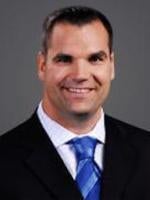Recently enacted changes to Section 19 of the Federal Deposit Insurance Act (Section 19) eased the restrictions on financial institutions when hiring individuals with criminal records, but the changes left some open questions regarding (i) the “de minimis” standard, and (ii) whether the changes to Section 19 effectively amended the Consumer Financial Protection Bureau’s (CFPB) Regulation Z (Reg Z), which applies to loan originators through Reg Z’s incorporation of Section 19 by reference.
Background
Section 19 prohibits individuals convicted of crimes of dishonesty, breach of trust, or money laundering—including theft, misappropriation, embezzlement, false identification, and writing of a bad check, among others—from working in banking without written consent from the Federal Deposit Insurance Corporation (FDIC).
On December 23, 2022, President Biden signed Section 5705, titled “Fair Hiring in Banking,” which directs covered institutions to disregard certain criminal convictions. For example, Section 5705 states that covered institutions should disregard older offenses where seven years or more have passed since the offense occurred, or five years or more have passed since the individual’s release from incarceration for the offense. Likewise, covered institutions should disregard an individual’s offenses committed when the individual was twenty-one or younger and more than thirty months have passed since the sentence occurred. These changes directing institutions to disregard offenses after a certain period do not apply to Section 19’s minimum ten-year prohibition on certain crimes enumerated in Title 18 of the United States Code, including bank fraud.
De Minimis Offenses
Under the current FDIC regulations, offenses are considered de minimis and waiver is automatically granted if the maximum punishment for the crime was (i) imprisonment of one year or less, and the individual served three days or less of jail time, and (ii) a fine of $2,500 or less. Offenses for writing “bad checks” (i.e. writing a check for which there are insufficient funds) are considered de minimis so long as the aggregate value of the “bad checks” written is less than $1,000 and the payees were not an insured depository institution (IDI) or a credit union.
The Fair Hiring in Banking provisions invited the FDIC to expand the “de minimis” standard to provide that offenses would be considered de minimis and waiver would automatically be granted if the maximum punishment for the crime were three years, calculated based on the time an individual spent incarcerated and not including pretrial detention, probation, or parole. In setting new criteria for bad checks, Congress invited the FDIC to increase the total aggregate value of the bad checks to $2,000 or less.
We have a written request in to the FDIC to confirm that, while waiting on further revision to the de minimis standard, employers should follow the current standard.
Regulation Z
The Fair Hiring in Banking changes also pose potential inconsistencies with Reg Z. Reg Z prohibits financial institutions from employing individuals in loan originator positions if the individual was convicted of a felony in the preceding seven years, or “at any time” for felonies “involving an act of fraud, dishonesty, a breach of trust, or money laundering,” unless they have received consent from the FDIC pursuant to Section 19.
However, the Fair Hiring in Banking provisions removed the requirement that an individual must obtain consent under Section 19 for offenses where: (i) it has been seven years or more since the offense occurred, or the individual was incarcerated for the offense and it has been five years or more since the individual was released from incarceration; and (ii) the individual was 21 years or younger when he or she committed the offense and 30 months or more have passed since the individual was sentenced.
As a result, there is a subset of convictions that would require FDIC consent under Reg Z that are no longer covered convictions under Section 19. The FDIC has yet to issue new regulations to implement the Fair Hiring in Banking changes, and at this time, it is unclear whether the FDIC will continue to process such consent applications.
Key Takeaways
The Fair Hiring in Banking provisions have created some gaps in the law that appear to require further regulations from the FDIC and the CFPB to address. A representative for the FDIC has previously confirmed that it will implement the changes later in 2023. Employers in the banking and mortgage loan industries may want to keep an eye out for those forthcoming regulations. In the meantime, employers may want to review the changes to Section 19 that are currently effective. Our previous article, “Congress Eases Criminal Offense Restrictions for Employment With Financial Institutions” has more information on the Fair Hiring in Banking provisions.






 />i
/>i
